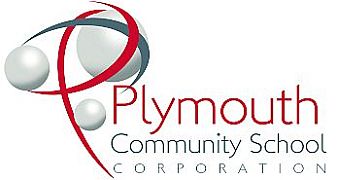 During a meeting on September 1st, the Plymouth School Board considered an explanation in the matter of licensure for a teacher in the Weidner School of Inquiry. Scott Michel does hold an appropriate license in education in general, but does not as yet have the license from the state to teach a course on renewable energy that is being offered as part of a dual credit course.
During a meeting on September 1st, the Plymouth School Board considered an explanation in the matter of licensure for a teacher in the Weidner School of Inquiry. Scott Michel does hold an appropriate license in education in general, but does not as yet have the license from the state to teach a course on renewable energy that is being offered as part of a dual credit course.
Board members agreed that Michel has the background necessary to teach the course and concurred that a probable next step would be to send him for training. Superintendent Daniel Tyree said, “We can send the minutes (Board meeting) down to Indianapolis and they will give him a license to teach the dual credit Renewable Energy classes.”
The Board felt it was best to acknowledge the difference in an open meeting.
Michel will be teaching with veteran teacher John Johnson in a first semester dual course of Chemistry and Ag Foods. In the second semester, they will combine the classes of Renewal Energy (Ag class) and Physics.
Tyree said students currently enrolled in the class will not see their dual credit status affected.
In other matters, the Board considered revisions and additions to polices and guidelines. Assistant Superintendent Andy Hartley said the changes are designed to put the school corporation in line with changes in state statutes.
The majority of the 38 changes or additions include only small differences; however, some contain larger changes. One of the most notable spells out the costs associated with electronic devices used by students. It contains the following: “In an event an electronic device is lost, stolen, or damaged, the individual student will be responsible for the cost of the repair and/or cost of replacement a determined by school administrators. Multiple instances of damage may result in the loss of device or other disciplinary actions.”
If passed, the policy would replace the current way in which incidents were handled. According to Bruce Johnson, Director of Technology, students were charged a blanket $100 for any repair. Now, the cost of a repair will be based on the cost of the part (s) needed and there will be no charge for labor. Johnson said the $100 often did not cover the actual expenses.
A policy of the Use of Service Animals is four pages long and includes several changes. It includes, in part, the following: “Individuals with disabilities shall be permitted to be accompanied by their service animal in all areas of the Corporation’s facilities where members of the public, as participants in services, programs, or activities, or as invitees, are allowed to go. It is imperative that Corporation staff not ask about the nature or extent of a person’s disability; however, they may make inquiries to determine whether an animal qualifies as a service animal. While Corporation staff cannot ask about the individual’s disability, they may ask if the animal is required because of a disability and what task or work the animal can perform. When the work or tasks the service animal will perform are readily apparent, Corporation staff should not ask.”
The entire proposed policy, as well as other proposed policy changes, can be obtained by contacting personnel in the Administration Offices.
The Board will consider all of the revisions or additions at their October meeting.














